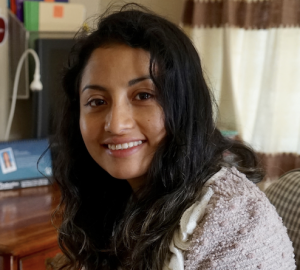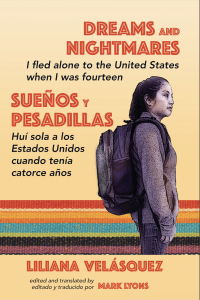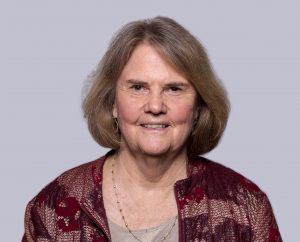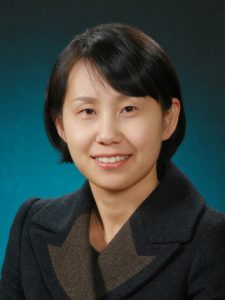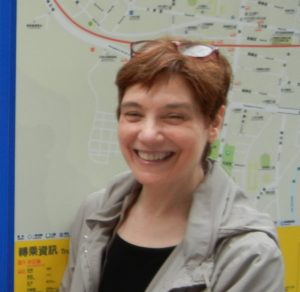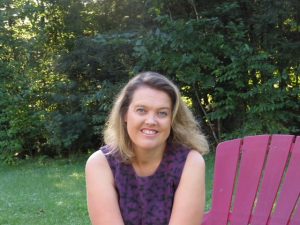Temple TESOL Speakers Series, Spring 2019
Thursday, February 7, 2019, 3:30 PM, Kiva Auditorium (Ritter Annex)
Dr. John M. Norris, Educational Testing Service
Title: Tasks, technology, and the future of language assessment: Aligning designs, intended uses, and consequences
Abstract: Language assessments are used for a variety of purposes, from placement to progress monitoring, from admissions to achievement testing, and from supporting learning to certifying proficiency, to name a few. Recent innovations in test design have led to a proliferation of techniques for eliciting and scoring language ability, but these developments also give rise to a critical question: Which among the variety of techniques is most appropriate for fulfilling which assessment purposes? And what types of language assessment might not be appropriate? In this talk, I will first consider several trends that have come to define—and complicate—language assessment in the current era. On the one hand, authentic performance tasks play a major role in language assessments, from classroom-based tests to large-scale proficiency exams.Such assessments present a distinct advantage when we want to focus on what learners can dowith language rather than merely emphasizing what they know. At the same time, task-based assessments can be quite challenging to develop, deliver, and score. By contrast, recent technology-mediated assessments emphasize efficiency and automation, opting to focus on those aspects of language knowledge or ability that are most readily captured and scored by machine. For these assessments, it is important to consider the limits of what can be validly interpreted about a learner’s actual language proficiency. Another complicating, if popular, trend is the notion that any and all language assessments can be aligned to common scales or frameworks of language proficiency, leading to the faulty assumption that they must all be testing the same thing. In order to resolve these and related tensions, I will outline an approach to evaluating language assessment designs according to the ways in which they are used and the consequences that ensue. Through examples of current and forward-looking test designs, I will illustrate how assessment developers as well as score users can work to ensure appropriate decisions and actions on the basis of their language assessment practices.
Bio: John Norris is Senior Research Director of the Center for English Language Learning and Assessment at Educational Testing Service, where he manages research on English language teaching, learning, and assessment. Prior to joining ETS, he was associate professor at Georgetown University, where he was founding director of the Assessment and Evaluation Language Resource Center. He also worked as associate professor at the University of Hawai‘i at Mānoa, and as assessment specialist at Northern Arizona University. He began his career as an English teacher in Texas, Brazil, and Hawaii, and he completed his Ph.D. in Second Language Acquisition at the University of Hawai‘i. John’s teaching and research focus on language education (task-based language teaching, in particular), assessment, program evaluation, and research methods. He has published widely on these topics, including recent books on “Second language educational experiences for adult learners”, “Improving and extending quantitative reasoning in second language research”, “Innovation and accountability in foreign language program evaluation”, and “Student learning outcomes assessment in college foreign language programs”. John speaks and conducts research on German, Portuguese, and Spanish, and he is currently acquiring Japanese.
Wednesday, March 20, 2019, 3:30 PM, Tuttleman 103
Liliana Velásquez
Dreams and Nightmares / Sueños y Pesadillas
Introduction: In the last five years, over 312,000 minors have fled their countries in Central America and Mexico and traveled north without their families, only to be caught by immigration at the U.S. Border. Liliana Velásquez is one of them. At eighteen she wrote a remarkable memoir, Dreams and Nightmares / Sueños y Pesadillas, which tells of fleeing horrific violence and poverty in Guatemala when fourteen and heading out alone for the United States. On her trip through Mexico she was robbed by narcos and rode the boxcars of La Bestia. Finally, she made it to the US border, and headed out across the Sonoran Desert, where she encountered death and was caught by US Immigration. After four months in detention, she was placed in foster care while the immigration courts decided whether to deport her. After having to recount her story of abuse several times, the judge determined it was too dangerous for her to return home and finally granted her a green card. She graduated from high school and is enrolled in a community college, where she plans to study nursing. Liliana is a remarkable storyteller, and her story is filled with detail, feeling, reflection and possibility.
Monday, April 1, 2019, 3:30 PM, Kiva Auditorium (Ritter Annex)
Dr. Diane-Larsen Freeman, University of Pennsylvania
Title: The Role and Responsibility of Language Learners
Abstract: In this talk, I will trace the roles ascribed to language learners in prominent theories of second language acquisition over the years. The roles are often implicit, and I myself have contributed unintentionally to some of the way learners have been portrayed. However, in hindsight, I now see that the contribution of learners to their own language learning is unappreciated in the theories. This is apparent, despite a number of case studies that challenge these theories, showing that learners do exercise more agency than what they are given credit for.
Introducing my own theoretical commitment to complex dynamic systems theory (CDST) into this situation, I will suggest that learners are much more individual in how they approach language learning, and even given a positive attitude and a willingness to engage with the task, there is a great deal of individual variation in the process and in the outcome. The variation is not uniquely ascribable to “individual differences,” such as motivation and aptitude, as has commonly been assumed. According to CDST, there are two reasons for this. The first is that group effects do not apply to any single individual in the group. The second is that agency does not inhere in a person, but rather arises from a person-context interface.
However, I also propose that learners can develop different orientations to agency. This is especially important for language teachers to understand because they have it in their power to encourage or discourage learners from assuming more responsibility for their learning.
Bio: Diane-Larsen Freeman is Professor Emerita of Education and Linguistics, Research Scientist Emerita, and former Director of the English Language Institute at the University of Michigan. She is also Professor Emerita at the Graduate SIT Institute in Brattleboro, Vermont and a Visiting Senior Fellow at the University of Pennsylvania. Her recent books areComplex Systems and Applied Linguistics (2008, with L. Cameron), winner of the MLA’s Kenneth Mildenberger Book Prize, the third edition of Techniques and Principles (2011, with M. Anderson), and the third edition of The Grammar Book, Form, Meaning, and Use for English Language Teachers (2015, with M. Celce-Murcia).
Temple TESOL Speakers Series, Fall 2018
Monday, September 24, 3:30 PM, Kiva Auditorium (Ritter Annex)
Dr. Hyun Jung Kim, Hankuk University of Foreign Studies
Title: Validation of Second and Foreign Language Performance Assessments: Implications for Test Development and Use
Abstract: Performance assessment has been widely used over the years in the second language (L2) testing field, along with a continuous emphasis on the communicative approach in L2 teaching and learning. L2 performance assessment requires test-takers to actually perform a simulated real-life task, through which their language sample is elicited for evaluation. The sample language performance is then scored by teachers/raters using predetermined scoring criteria. With attempts to replace traditional paper-and-pencil tests with performance assessments for more meaningful, appropriate inferences regarding test-takers’ language ability, the validity of L2 performance assessments has been an important issue in language testing. This presentation first introduces an assessment framework (Pellegrino, Chudowsky, & Glaser, 2001) and its components (cognition, observation, and interpretation), and describes where validation can be situated in the L2 assessment process. It then focuses on L2 performance assessment, including its unique, defining characteristics and variables (e.g., test-taker, task, rater, and rater training) inevitably involved in the assessment process to address the need to validate L2 performance assessment. Finally, the presentation reviews empirical studies and discusses how L2 performance assessments are validated in the testing field. It also considers the implications of such validation studies for the entire process of L2 performance assessment (including their design, development, scoring, and interpretation) and their use for decision-making.
Bio: Hyun Jung Kim is an associate professor in the Graduate School of TESOL at Hankuk University of Foreign Studies in Seoul, Korea, where she teaches undergraduate and graduate courses such as Second Language Assessment, Research Methods, and Second Language Acquisition. She earned an Ed.D. in Applied Linguistics from Teachers College, Columbia University in 2011. Her research interests include L2 speaking and writing assessment, learning-oriented assessment, language test validation, and discourse analysis.
Wednesday, October, 17, 3:30 PM, Ritter Hall 111
Dr. Ellen Broselow, SUNY Stony Brook
Title: The Melody Is as Important as the Lyrics: Native and Non-native Use of Intonation
Abstract: Intonation plays an important role in English by serving to highlight new information, signal contrast, and communicate subtle aspects of speakers’ assumptions. Although learners of English often have difficulty mastering English intonation, and this incomplete mastery has been shown to affect the comprehensibility of non-native English (e.g., Hahn 1994), there has been relatively little research on learners’ acquisition of English intonation. This talk reports on two studies, part of a longitudinal investigation of the interaction between international teaching assistants and their English-speaking undergraduate students, which compare the use of English contrastive intonation by native speakers of English and of Mandarin Chinese. The studies reveal that while the non-native speakers can use intonational cues in both their production and their processing of English sentences, their use of these cues differs in specific ways from that of native speakers.
Bio: Ellen Broselow received her BA in English from Temple University, where she took a class that inspired her to pursue the PhD in linguistics at the University of Massachusetts at Amherst, where she wrote her dissertation on Arabic phonology. She has been teaching in the Linguistics Department at Stony Brook University since 1983, where she is now Professor of Linguistics and Senior Associate Dean of the College of Arts and Sciences.
Tuesday, November 13, 5:30 PM, Kiva Auditorium
Dr. Christina Ortmeier-Hooper, University of New Hampshire
Title: Writing across Culture and Language: Realizing the Competencies of ELL/Multilingual Writers
Abstract: How can we be prepared to develop culturally responsive writing instruction that meets the needs of multilingual/ELL students? We know that ELL/multilingual student writers have rhetorical and literacy competencies that can form powerful building blocks in their English writing development, yet often teachers are unsure how to employ these resources in their instruction. Drawing on her work and the field of second language writing, presenter, Dr. Ortmeier-Hooper will share research-based best practices that can help new and experienced teachers develop more effective instructional approaches for their work with bilingual and ELL writers. Her talk will consider how teachers and their students can move beyond “deficit models,” when it comes to writing. Specifically, she will share findings from her work with teachers and students, in order to discuss strategies from systemic functional linguistics (SFL) approaches, ELL-specific feedback loops, and other culturally responsive practices that can help teachers—from middle school, high school, and college—develop conditions for success for the multilingual/ELL student writers in their classrooms.
Bio: Christina Ortmeier-Hooper is an Associate Professor and former Director of Composition at the University of New Hampshire, where she teaches first-year writing, advanced composition, and teacher education courses, as well as graduate courses in TESOL/SLA, teacher research, composition theory, and multilingual writing. As a former secondary school ESL/Language Arts teacher, Christina’s interests continue to be anchored in working with teachers and multilingual adolescents as they navigate the expectations for writing, reading, and language in secondary schools and college. Her work has been published in TESOL Journal, English Journal, College Composition and Communication, and The Journal of Second Language Writing. She is the author and editor of various books, including: The ELL Writer: Moving Beyond Basics in the Secondary Classroom (Teachers College Press, 2013), Reinventing Identities in Second Language Writing (NCTE, 2010) and Linguistically Diverse Immigrant and Resident Writers: Transitions from High School to College (Routledge Press, 2017). Her most recent book, Writing across Culture and Language: Inclusive Strategies for Working with ELL Writers in the ELA Classroom was published with NCTE in 2017.

